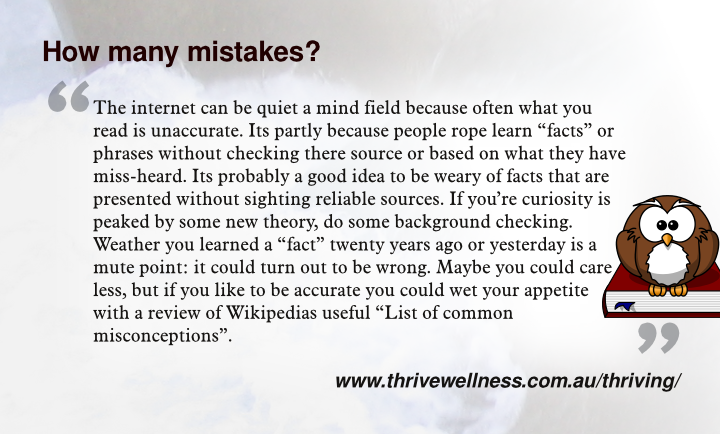
This was a post put up yesterday on our Thrive Wellness facebook page. In case you’re looking for the answer, I thought it was between 16 and 18 depending on opinion on a couple of things (for example, “unaccurate” does appear in some dictionaries, and has a history of appearing in some literature but is generally considered a mispelling).
Here is corrected text with 17 changes. I’m sure someone out there can identify more corrections that should be made:
The Internet can be quite a mine-field because often what you read is inaccurate. It’s partly because people rote learn “facts” or phrases without checking their source or based on what they have misheard. It’s probably a good idea to be wary of facts that are presented without citing reliable sources. If your curiosity is piqued by some new theory, do some background checking. Whether you learned a “fact” twenty years ago or yesterday is a moot point: it could turn out to be wrong. Maybe you couldn’t care less, but if you like to be accurate you could whet your appetite with a review of Wikipedia’s useful “List of common misconceptions”.
Now, if reading all those mistakes was an emotionally intense experience for you, bringing up memories of countless infuriating times of reading or hearing something wrong, perhaps you might like to head over and read It Has to be Perfect and The Unrelenting Society.

Leave a Reply